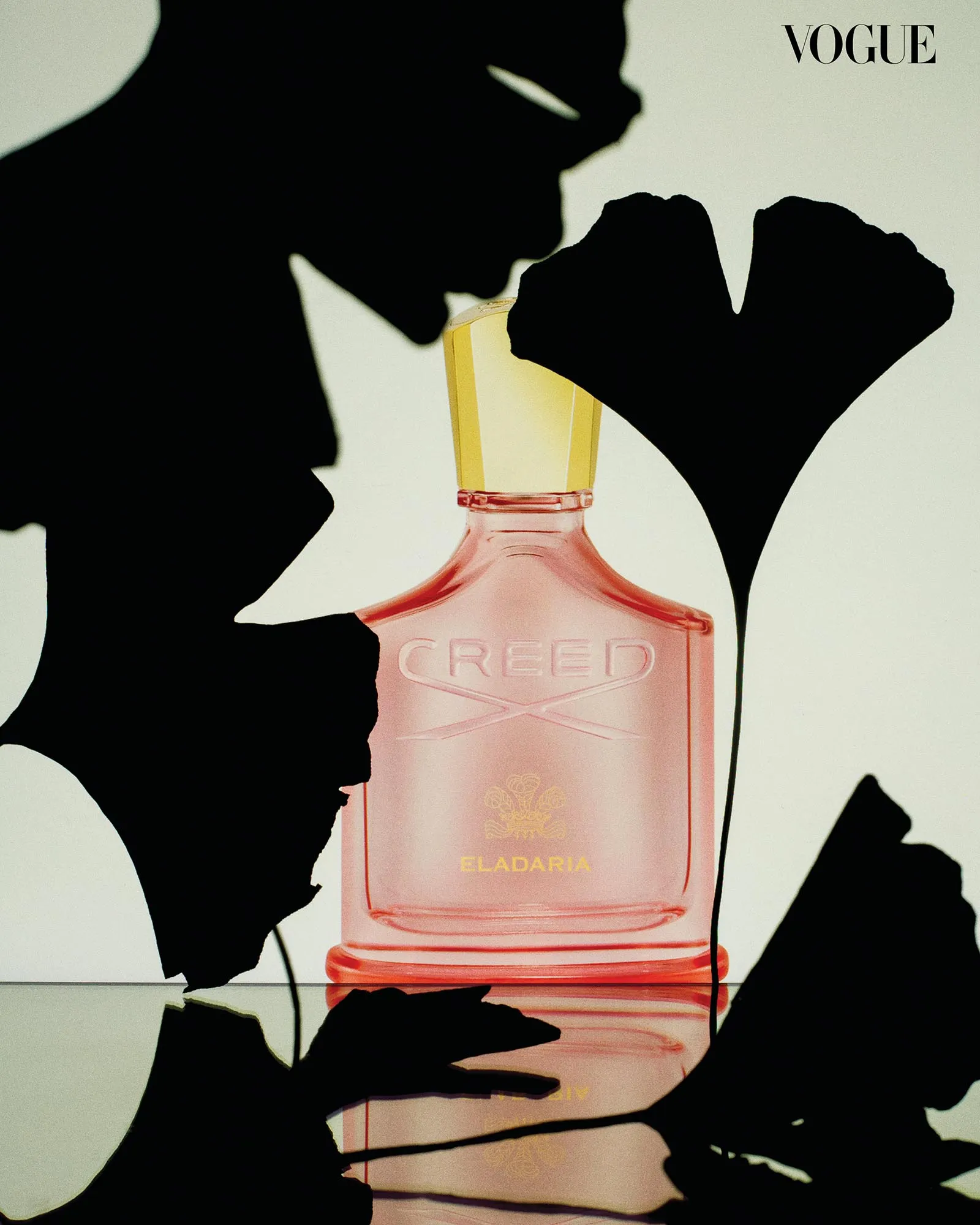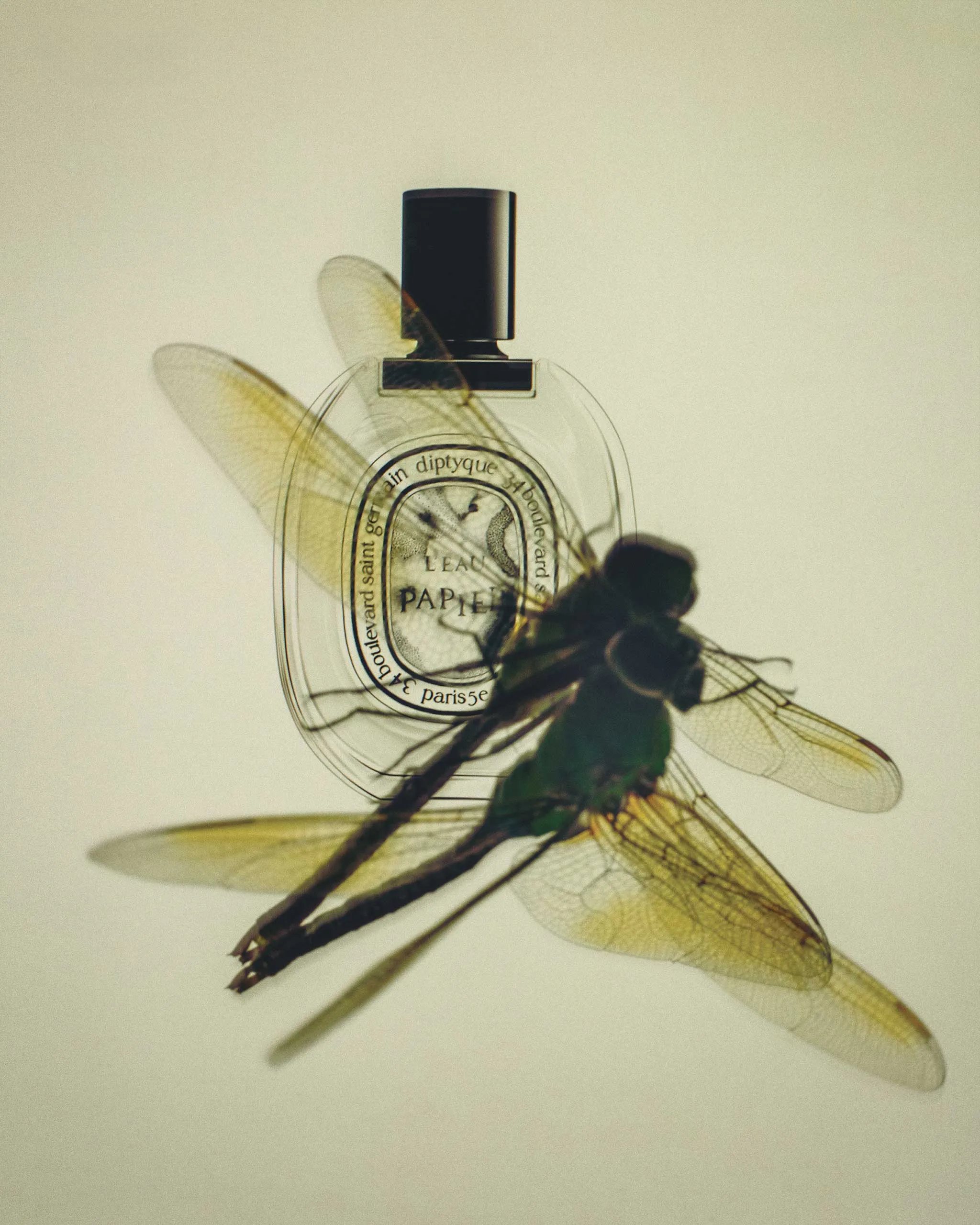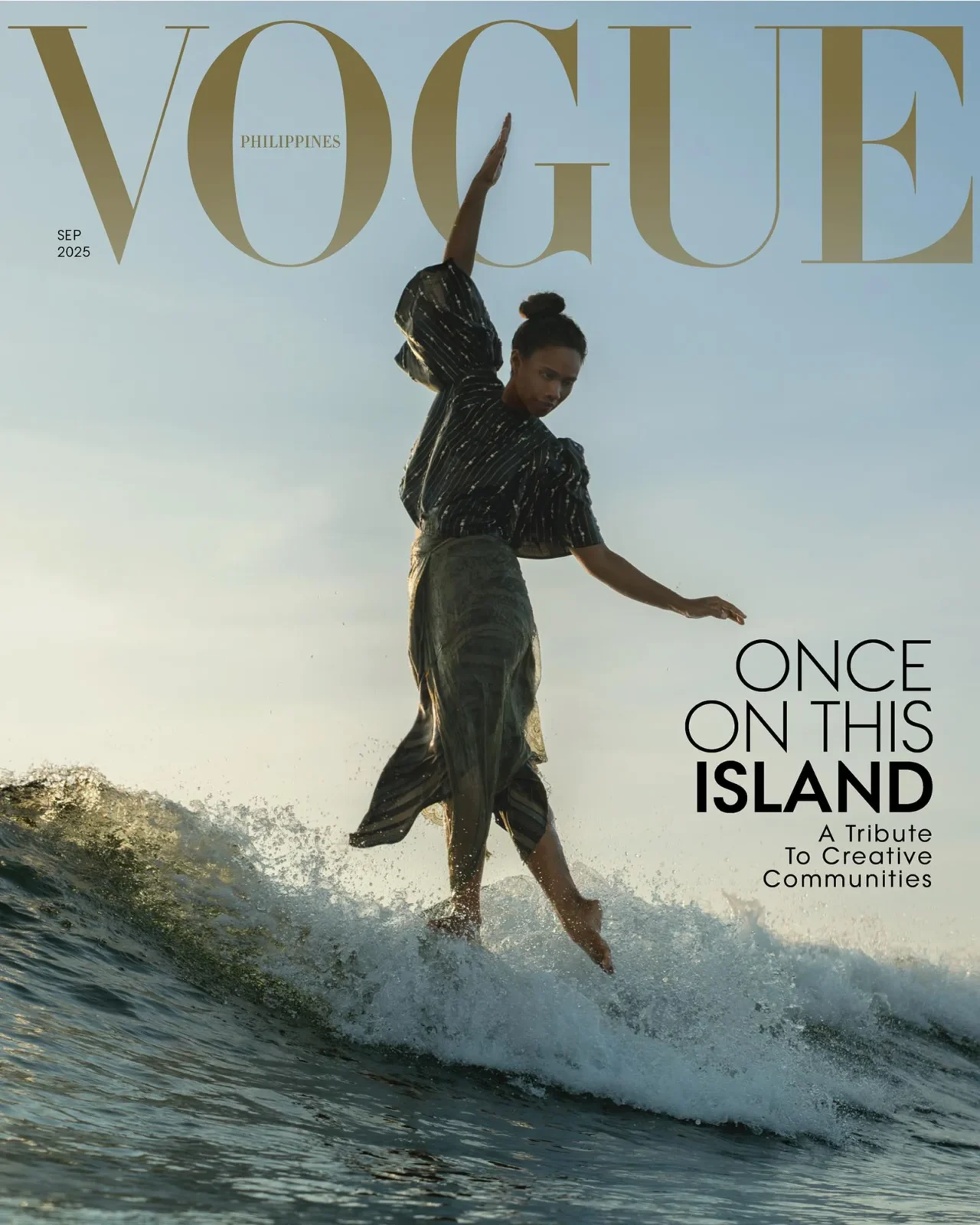DIPTYQUE l’eau papier eau de toilette (PHP9,950). Photographed by Harold Julian for the September 2025 Issue of Vogue Philippines
The rise in fragrance interest among younger consumers reflects the spirit of a generation driven by self-expression and identity.
On TikTok, now one of the top three drivers of fragrance purchases, the hashtag #perfumetiktok has racked up over 4,000,000 posts. In these videos, young users describe scents in vivid vignettes: one might smell like “drinking an iced rose lychee green tea on a yacht while basking in the sun in the south of France,” and another, simply, “a crisp white T-shirt and jeans.” For Gen Z and Gen Alpha, assigning scents to characters and stories they resonate with has become a new way to manifest and reinforce their sense of self.
This shift marks a notable departure from how perfume was marketed in the past. In the October 1998 issue of National Geographic, journalist Cathy Newman wrote that fragrance was once “a promise in a bottle,” meant to make you “prettier, richer, sexier, happier.” But fragrance wearers today are less concerned with becoming someone else and more invested in expressing who they already are. It’s a clear shift that Filipino perfumer and fragrance educator Bernadette Lim has taken notice of.
“Previously, fragrances were more like an accessory. Just something that would complete your wardrobe,” says Lim, drawing from over 15 years in the industry. “Now, with Gen Z, it’s about, ‘how do I create a scent that’s me?’ It’s about fluidity: regardless of what scent it is, if it represents who I am today, I will wear it.”
In The Future 100: 2025, VML Intelligence reports that 70 percent of Gen Z believe that their chosen scent reflects their identity. Further data shows that this new generation is more than willing to spend on scent, making luxury fragrance a new tool for self-definition.
In an exclusive interview with Vogue Philippines, global director Emma Chiu explains, “They are growing up in a world where they notice resources are quite scarce. They have a lot of political turmoil surrounding them, and they want to take action. But they can’t always be focusing on these big topics. So there are ways that they want to manage and represent their story and a sense of who they are, and they’re doing so through more nuanced ways, such as through scent.”

With the premiumization of fragrances, Chiu explains that the industry is opening up to more choices, and in turn, more opportunities for scent experimentation. Combined with this generation’s pursuit of individuality, these shifts are fueling the rise of niche, artisanal fragrances. Their limited availability and unapologetic scent profiles make them especially appealing to this new generation. Trend reports echo this, noting that Gen Z favors unexpected, experimental compositions, including “neo-gourmands, clean, earthy notes, and bold statements.”
For this generation, the idea of being boxed into one thing might feel more like a limitation than a luxury. As a result, younger wearers are also moving away from the idea of a singular signature scent. This is why, according to perfumer and co-founder of the Filipino Perfumers Society, Renato Lopena Jr, “we’re seeing a rise in scent layering, collecting, and building fragrance wardrobes, because they allow individuals to create a signature scent that is truly their own.”
Some layer fragrances to create custom blends, while others rotate their favorites with the seasons or even their moods. They call this “scent-maxxing,” layering perfumes with body lotions, hair mists, and essential oils for a long-lasting, distinctly personal fragrance profile.
Underlying it all is a shift in values. “Gen Z, shaped by the digital age, [are] conscious consumers,” adds Lopena. “They look past the surface, examining a product’s ingredients and its ethical footprint. A scent isn’t just about smelling good; it needs to resonate with their personal identity and values, serving as a form of self-expression in a way that previous generations didn’t prioritize.”
According to Chiu, data has long reflected how integral values are to this generation. Sustainability, cruelty-free labels, and transparency matter, and this shift is prompting brands to become more mindful. “Both sides are changing,” Lim adds. “The way we shop for fragrance and the shopping experience itself.”
Building on their sense of identity is, in many ways, helping this generation discover community. “Everyone connects them to being digitally engaged, but our research shows time and again, this generation would prefer to meet people or meet their friends in person,” says Chiu. “I think it’s quite important [to them] that they’re able to express themselves [while] being in close proximity to people.”
In the Philippines, this is reflected in the way fragrance has sparked new communities, such as the Pinoy Fragheads Community (PFC), where online users discuss in depth and collectors gather in cafés to share, smell, and talk scents.
For Gen Z and Gen Alpha, fragrance is a rebellion against sameness, an invisible form of self-definition. Scent is no longer bound by age, gender, or occasion. Where previous generations asked, “What’s in style?”, this one asks, “What smells like me?”
See more of this story in the Anniversary Issue of Vogue Philippines, available at the link below.
By BIANCA CUSTODIO. Photographs by HAROLD JULIAN.

